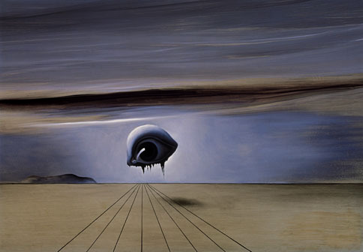Jonathan Franzen Gets All Preachy on E-readers

The latest salvo in the e-reader vs. physical book “debate” comes from Jonathan Franzen, author of The Corrections and Freedom, who famously snubbed Oprah’s book-of-the-month club (then later, sort of, recanted).
Displaying a surprising lack of self-awareness, Franzen represents his (and other book lovers’) aesthetic preference for the physical book as a universal point of morality, arguing that “serious readers” prefer the relative permanence of words printed on paper to the apparent evanescence of digital text.
I’m a book lover, too. And I don’t own an e-reader because I don’t really like reading on them. I am also comforted in a deep, enduring sense by my personal book collection, acquired lovingly, book by book, over a lifetime. Hell, it’s a vital aspect of my inner sense of identity. But really, Mr. Franzen, does theatre’s impermanence (the performance happens, then vanishes) make it less morally serious or enduring than film or television? Did the Gutenberg press corrupt humanity by disseminating lofty ideas to the masses or eliminating the human touch of handwritten books?
There’s no question that the widespread adoption of any new technology can represent a profound aesthetic loss. But people are always creating new forms of beauty to cling to. And in the case of physical books, should they ever vanish mostly or entirely (which is still an open question), to claim that their passing represents a threat to the art of writing or reading is orthodoxy of the silliest kind – reminiscent of the folkies who booed Bob Dylan’s first public use of the electric guitar.
Readers – what do you think? Is Franzen being just a bit myopic here? Am I equally orthodox in my defense of change?
Read the Guardian interview that got me all hot and bothered.
Follow Jason Gots (@jgots) on Twitter




